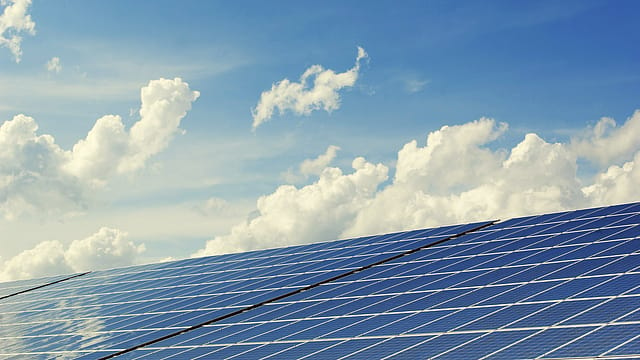SoftBank chief Masayoshi Son to offer free solar power to India
ADVERTISEMENT

SoftBank chief executive Masayoshi Son has promised to supply free electricity to International Solar Alliance (ISA) member-countries including India once the 25-year power purchase agreements of the projects owned by SB Energy, a joint venture between the Japanese firm and Bharti Group, come to an end.
Son was speaking at the second global RE-Invest conference in Greater Noida on October 3.
He says he hopes to recoup his investments within the purchase power agreement period and wants to “give back” to the society by providing access to electricity to all .
Son’s commitment comes at a point when “electricity for all” has also become a major thrust for the Indian government. Although, India has a more than two-decade long wait before it can cash out on Son’s offer.
India has set an ambitious target of achieving 175 GW of renewable energy capacity by 2022 and the government says it is well on track to exceed this target. As of June 2018, solar energy capacity increased by over eight times from 2.63 GW in 2014 to 22 GW.
“I chose India as the big first country that I would like to support because India has a great sunshine, a big wasteland and also supportive government,” Son said, confirming his discussion with Prime Minister Narendra Modi ahead of this conference.
January 2026
Netflix, which has been in India for a decade, has successfully struck a balance between high-class premium content and pricing that attracts a range of customers. Find out how the U.S. streaming giant evolved in India, plus an exclusive interview with CEO Ted Sarandos. Also read about the Best Investments for 2026, and how rising growth and easing inflation will come in handy for finance minister Nirmala Sitharaman as she prepares Budget 2026.
In July, solar tariffs had touched a record low ₹ 2.44 per unit in India, making it one of the most affordable countries for solar power generation in the world.
The ISA, a platform that brings together 121 “solar rich countries” situated between the tropics of Cancer and Capricorn as its members, was launched at the Paris Climate Talks in 2015 with an aim to mobilise over $1000 billion of investments by 2030 “for the massive deployment of affordable solar energy”.
Son pointed out that India’s crude oil and coal import stands at $88 billion and $22 billion respectively and there has been a 20% surge in petrol prices over the past one year. “It is important to have no dependency of energy source. To serve over a billion people, you have to have security and independence of the energy source by itself,” said Son.
The life span of a solar power plant can extend over 80 years. While the efficiency of the plant is reduced by 15% in the first five years, it continues to generate electricity at an efficiency of around 85% for the rest of its life, Son explained.
In June this year, Reuters cited a report by Japanese public broadcaster NHK to say that SoftBank Group has plans to invest $60 billion-$100 billion towards solar power generation in India.
